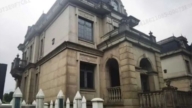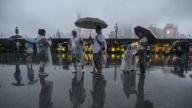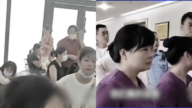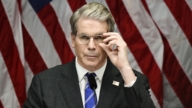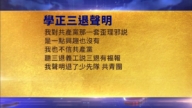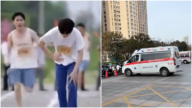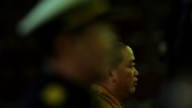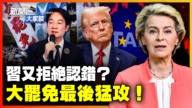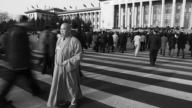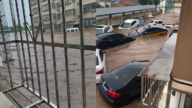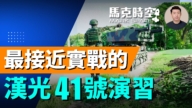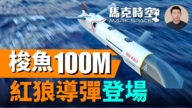【新唐人2011年10月6日讯】温州高利贷引发的“跑路潮”愈演愈烈,引发投资者对中国经济的担忧。近期再曝数十位富商由于资金链断裂后“跑路”。10月4号,中共总理温家宝到温州市考察,就当地的金融问题召开座谈会,要求稳定当前的经济局面。分析人士表示,温州民间借贷、资金链断裂的问题早已存在,温家宝现在救火是否为时已晚?请看报导。
今年以来,温州频发因高息借贷、资金链断裂,多家当地企业主“欠款跑路”事件。
中共喉舌《新华社》稍早之前报导,温州民间借贷空前活跃,上半年累计发生民间借贷485.5亿元,民间借贷利息疯涨到0.03-0.05元,个别甚至高达0.1元。由此导致许多中小企业因资金链断裂而发生老板潜逃、跳楼自杀、企业倒闭、员工欠薪等一系列事件。
9月27号,“正得利”鞋业的老板沈奎安跳楼自杀,在温州双屿的“中国鞋都”引起了不小的震动。一位工厂员工黄先生表示,沈某之前在全国各地投资了大量的房地产,其中也使用了大笔的民间借贷。
《新唐人》特约评论员杰森认为,温州老板原以实体经济发家,如做眼镜、做鞋、做玩具等。后来嫌实体经济不赚钱,就去搞房地产和其他一些新兴产业。由于中国今年出现通货膨胀,房地产资产收不回,民间贷款利息又高,致使出现了僵持状态。
《新唐人》特约评论员杰森:“今年上半年中国房地产就是一下子中途控制了,一线城市限购,现在二线城市也限购。然后中国房地产出现了僵持状态,价格不降,销售量大降,各地方销售量都大降,很多楼盘卖的很艰难。中国现在通货膨胀,膨胀起来之后呢,中共又开始控制几个银根,就是控制银行贷款的数量,结果银行贷不着钱。”
杰森指出,银行贷不出来款项,民间利率又特别高,少的也得20%,多的达到100%,这样越贷越多,加上现在经济不好,很难还得起。在这种情况下,经济就出现断裂了。最后就只能选择跑路。
10月4号,温家宝主持召开了关于应对目前金融危机的专题座谈会,要求温州市委、市政府尽快稳住经济、金融局面。
杰森:“我不觉得他(温家宝)说说话能实实在在的解决这个问题。中共也面临着一个两难的问题。它现在要放宽银行贷款,它面临着很快通货膨胀又起来了,那么整个全国老百姓都得遭殃。”
另外,导致温州经济链断裂的另外一个原因,《凯迪社区网》报导,“温州高利贷老板举家潜逃,八成债主为当地公务员。”
浙江民主人士邹巍表示,这样的金融危机实际是体现了官员的腐败,他说,在政治改革停滞不前的情况下,未来还有可能爆发出更大的危机,随时转化为政治危机。
邹巍:“那么在中国这么一个市场不公正,市场维系的体系非常脆弱,特别还有官员和市场腐败行为是紧密相连的,存在着权力的市场化,政府行政权力的市场化,官员权力倾注的空间。随时引爆一场具有中国特色的地区性经融危机。”
外界认为温家宝是去温州救火。但救火的资金将用谁的钱呢?
杰森:“你要说最终拿谁的钱?那还是拿老百姓的钱。就是它现在是拿银行的钱,银行搞不住了,顶不住了,如果坏账太多了,政府来救的时候就拿老百姓的钱,就是用通胀的方式来填这个窟窿。”
新唐人记者唐睿、王明宇采访报导。
Debtors Flee’ Crisis In Wenzhou
More and more Wenzhou entrepreneurs fled their homes
over debts, triggering a new wave of worry among investors.
On October 4th, Premier Wen Jiabao held a seminar
in Wenzhou, seeking to stabilize the financial situation.
Analysts state that the issue of private lending
and financial strand break has existed for a long time.
Is Wen’s rescue coming too late?
Recently, entrepreneurs flee “on foot" due to private loans
and financial strand break happening frequently in Wenzhou.
CCP’s (Chinese Communist Party) Xinhua News agency
reported that Wenzhou’s private lending has been very active,
totaling RMB48.55 billion for the first half of the year,
with interest of 3% to 5%, some even hit 10%.
The high interest drove many middle-size or small business
owners to flee from their loans or commit suicide.
On September 27, Mr. Shen, owner of a shoe factory
jumped from a high building and killed himself in Wenzhou.
The news shocked the “city of shoes." A former employee,
Mr. Huang, said Shen had invested a lot in properties
all over China and used a lot of private loans.
NTD’s commentator Jason stated that Wenzhou
entrepreneurs built up their wealth through manufacturing,
such as making toys, shoes, etc. However, lured by high profit
in the real estate market, they shifted their investments there.
This year China’s real estate market slowed down and they
cannot get back their investment, nor pay back the interest.
Jason; “For the first half of the year, CCP started
to control housing buying, in first and second tier cities.
China’s real estate market entered a deadlock; prices were
not dropping, but sales were dropping dramatically.
Most of the properties are very hard to sell.
China now also has high inflation.
CCP asked banks to control their loans,
so bank loans are also becoming harder to get."
Jason said, with bank loans getting harder to obtain,
private loans charge high interests, between 20% and 100%.
They are very hard to pay back. In this situation the financial
strand breaks and entrepreneurs have no choice but to flee.
On October 4, Wen Jiabao hosted a seminar seeking to handle
the current crisis. He asked Wenzhou to stabilize the situation.
Jason:" I don’t think he can solve the problem
by just talking. CCP is now facing a dilemma.
If it makes bank loans easier, it will create inflation,
which will harm the whole country."
Kaidi community website wrote that another reason for the
financial strand break and borrowers’ flee wave in Wenzhou,
is the fact that 80% of the lenders are government employees.
Zhejiang Pro-democratic activist Zhou Wei stated that
the financial crisis actually shows the corruption of officials.
He thinks that without immediate political reform,
the crisis will soon bring a major political storm.
Zhou Wei: “China’s market is not fair, the system is very
vulnerable, especially when bound to government corruption.
It gives room for market government power,
or officials using their power over the market.
This may trigger a unique economic crisis in China."
The analysts ask, although Wen Jiabao may try
to extinguish the fire, who will be paying for it?
Jason: “Who will pay in the end? The common people.
If the banks cannot solve the problem,
if the toxic debts are too much, they will use inflation
to deal with it, they will use people’s money to fix it."
NTD reporters Tang Rui and Wang Mingyu.


